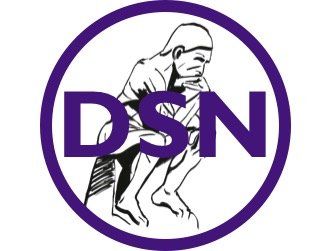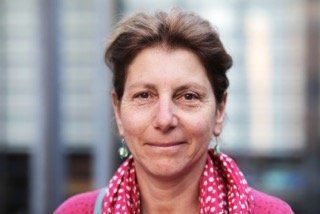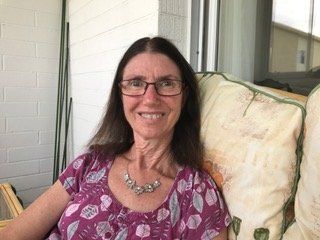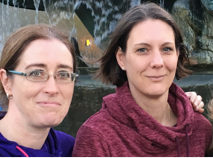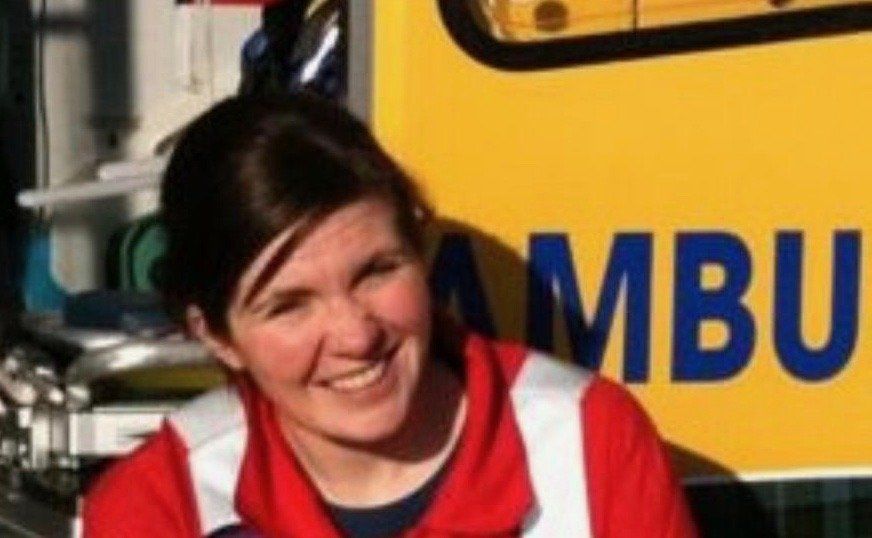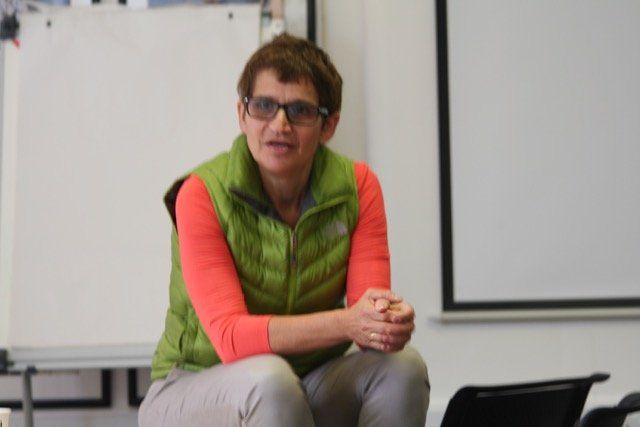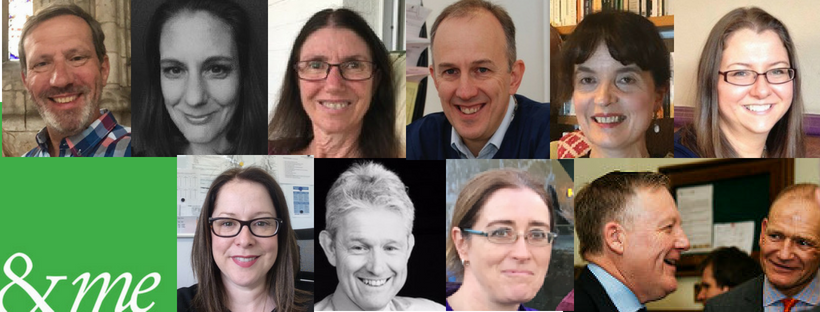Dr Serena Haywood - &me anti stigma campaign
Find out more about our campaign and how you might get involved here
Read on to learn about our volunteer Serena's inspiring story:

Dr Serena Haywood MBBS BSc FRCPCH MSc MA
Consultant Paediatrician, Guardian of Safe Working Hours, GMC Associate Assessor, BMA Doctor Supporter, London Women’s Leadership Network Mentor, Trust Health & Wellbeing Champion, Resilience blogger (Recalibr8), theatre producer and playwright.
'When your bio is longer than your story there’s probably a thing going on….
My story is that I have depression (including post natal), anxiety, post-traumatic stress disorder (PTSD) and a LOT of jobs. In my very doctory way, I work through my mental distress by doing more and more. Which means I’ve gathered a lot of titles along the way. On the surface then, I’m a mental health success story. Still a doctor. Climbing my way up the physician pole without overly frightening the horses.
But working harder and harder might not always be the healthy option. Workaholism is not unusual in doctors. I like to think that I take it to the next level. When I’m feeling low, I start another degree. I’ve had to be wrestled to the ground recently from starting a PhD. Why do this? I am terrified of stopping. I am a deceptively functional individual, successful by most measures, cheerful and good company. My friends say I make everything more fun and also ‘things/drama’ tend to happen around me. I love drama in all senses which is why I am a playwright and theatre professional as well as a doctor but this reflects my beginnings as the daughter of an alcoholic. Our collective behaviour is often one of cheerful calm, conflict avoidance and control at the expense of our own wellbeing whilst craving a maelstrom of emotions around us in order for things to make sense. I am a supporter and giver from childhood, absorbing others’ distress but that has not always been a healthy position and my familial tendency to maladaptive behaviours has taken the form of working sometimes to the point of exhaustion.
What happened
I had depressive symptoms from late adolescence triggered by my parents’ abusive domestic situation, which continued through medical school, culminating in my first significant depressive episode. Seeking help was not always easy and the support I received was often patchy and sometimes very peculiar; being told by a general practitioner (GP) to treat myself with plentiful relationship-less sex was a colleague low point. My trainee peers were fantastic but the oddness of responses over the years from bosses continued, with responses ranging from curtness, being patronised and, frankly, fear. The Iesson that I therefore learned, was that doctors did not let the side down (particularly as a woman, heaven forfend) and the rules were: don’t blub, be super profesh and ‘just get on with it’. When I experienced an extremely traumatic experience in paediatrics twenty years ago and was essentially left to deal with the emotional fall-out on my own (‘You’re fine are you? Good’), I did just that and more. My response was to keep my head down, shut down and emotionally blunt. This resulted in the insomnia, intrusive thoughts, hyper-vigilance and self-blame that I was later told were classic signs of PTSD. I came close to taking my own life. It was only in finding peers in Australia who told me this wasn’t ‘normal’ that I looked outside of the hard shell I had built up around myself and started my psychotherapy journey (via MedNet, now the Practitioner Health Programme in the UK) that I continue today. This hasn’t always been easy and, in part, I continue to make life challenging for myself by refusing medication and time off. This changed when another awful event four years ago triggered me into an emotional black hole and I conceded that I needed two weeks off. The fear and isolation of this event led me to take the risky decision to start talking about my mental health as much as I could to as many people as would listen. I was advised not to but did it anyway. And my life changed from there.
The benefits of speaking out
My colleagues have been universally accepting, my Trust (employer) has been supportive both in occupational health and managers and I have felt better. I have been supported in talking with junior doctors about resilience and that has led me to talking with other healthcare professionals, doctors returning to work, GP trainees, IT workers and on one notable occasion, Her Majesty’s Treasury Office. I support doctors dealing with the GMC via BMA Wellbeing and they in turn support me to be a better listener and learn more about the mental health of others. I blog as recalibr8 as part of my mental health journey and teach the skill of writing to support others to develop resilience using amazing actors in workshops. Doctors asked to do improvised comedy are hilarious! I also write plays which are performed in fringe theatres around London, Manchester and the Edinburgh Fringe Festival.
Why I am volunteering for AndMe
My wish is that if only one person can read this and take the exceptionally brave step to seek support from other professionals as a result that is job done. If it also helps reduce the stigma of health care workers coping every day with mental health difficulties, even betterer (job done plus…yes, OK, always the extra step!). I rely on my friends, my family and exceptional kids, my colleagues and, importantly myself, to notice when my depression comes back. I know it will, it always does. But I’m learning to be kind to myself, to know when to stop if I need time out so I can give the best to my patients and actually and literally say no. I tell myself that I do recover from the dark moments and to know that my sense of failure that sets that off is often misplaced. I am on a sobriety journey now which is tougher than I thought but I am hoping to use that experience in my next writing project. Do come, tickets available soon (always the shameless plug!). '
